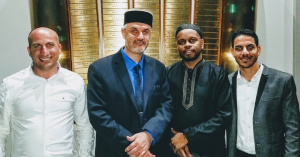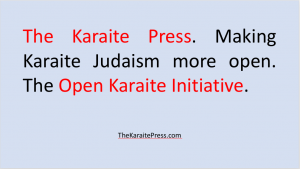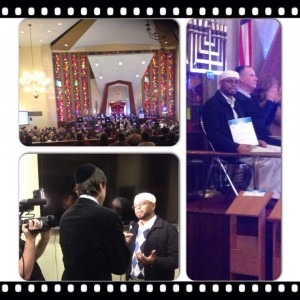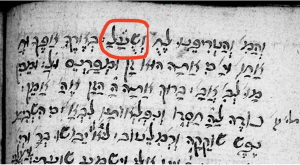 My Birkat brings all the boys to the yard, I can teach and I won’t even charge. Or something like that. About a year ago, I was caught in what appeared at the time to be a mind-numbing debate over some minutiae regarding a single word in the Birkat Hamazon that appears in Karaite texts. It turns out the debate was not mind-numbing at all and a simple look through the Cairo Geniza would have solved the whole issue and explained a whole lot more.
My Birkat brings all the boys to the yard, I can teach and I won’t even charge. Or something like that. About a year ago, I was caught in what appeared at the time to be a mind-numbing debate over some minutiae regarding a single word in the Birkat Hamazon that appears in Karaite texts. It turns out the debate was not mind-numbing at all and a simple look through the Cairo Geniza would have solved the whole issue and explained a whole lot more.
Category Archives: James Walker
My Birkat Hamazon is Wrong, But It’s Better Than Yours
Filed under Eli Shmuel, Geniza, James Walker, Liturgy, Neria Haroeh, Nir Nissim, Prayer, Siddur
Learning 3: A Karaite Perspective on the High Holidays
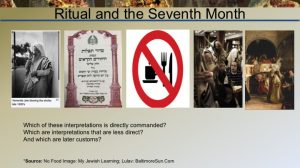
How many of these rituals are what the Torah intended?
May you reach the end of the holidays and rejoice for completing them. In case you were not able to join us for the live webinar, my latest learning has been posted to YouTube. And is also embedded below.
In this talk you’ll learn: 1) Whether we are commanded by the Torah’s text to blow a shofar; 2) What the Jewish sages said about the connection between Yom Teruah and Yom Kippur; 3) What are we supposed to do with those “four species”, and 4) what Biblical holiday has Simhath Torah overshadowed.
Karaite Reaches North American Finals at Tanakh Competition
I first started corresponding with James Walker about eight years ago, when I was still in law school and he was interested in converting to Judaism through the Karaite movement.
To be frank, I was inspired by the fact that Karaite Judaism could link a California-descendant of Egyptian Karaites and a black man from the South. And to be even more frank, I was immediately impressed with his knowledge of Hebrew and Scripture – which far surpassed mine.
James’ knowledge of the Tanakh recently earned him a place in the North American finals in the State of Israel’s Tanakh competition, and today I catch up with him about his experience at the finals in New York this past November.

